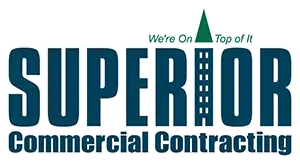Commercial building owners in Atlanta may need to decide at some point whether to install a flat or sloped roofing system on their building. Both options come with distinct advantages and disadvantages that should be weighed against the specific needs and requirements of the building. Here are some of the key points to consider:
Flat Roofing Systems:
- Typically more cost-effective and easier to install than sloped roofs;
- Provide extra space for outdoor installations such as rooftop gardens, solar panels, and HVAC equipment;
- Offer super-accessible maintenance and repair work;
- Prone to leaks and water damage;
- Lack of slope makes it difficult for water to drain properly, leading to potential structural issues and mold growth.

Sloped Roofing Systems:
- Better suited for areas with high precipitation since the slope allows water to drain off effectively;
- Less likely to experience water damage and leaks;
- Offer better insulation and ventilation, leading to lower energy bills and a more comfortable indoor environment;
- Require more extensive installation and maintenance work, resulting in higher costs;
- Have less usable space compared to flat roofs, making it challenging to install rooftop features.
Ultimately, the choice between a flat or sloped roofing system depends on several factors such as budget, climate, and the intended use of the building. It is crucial to consult with a preferred Atlanta commercial roofing contractor who can assess the specific needs of your building and recommend the most appropriate option. Regardless of the chosen roofing system, regular maintenance and inspection are essential to ensure the longevity and safety of the building.
